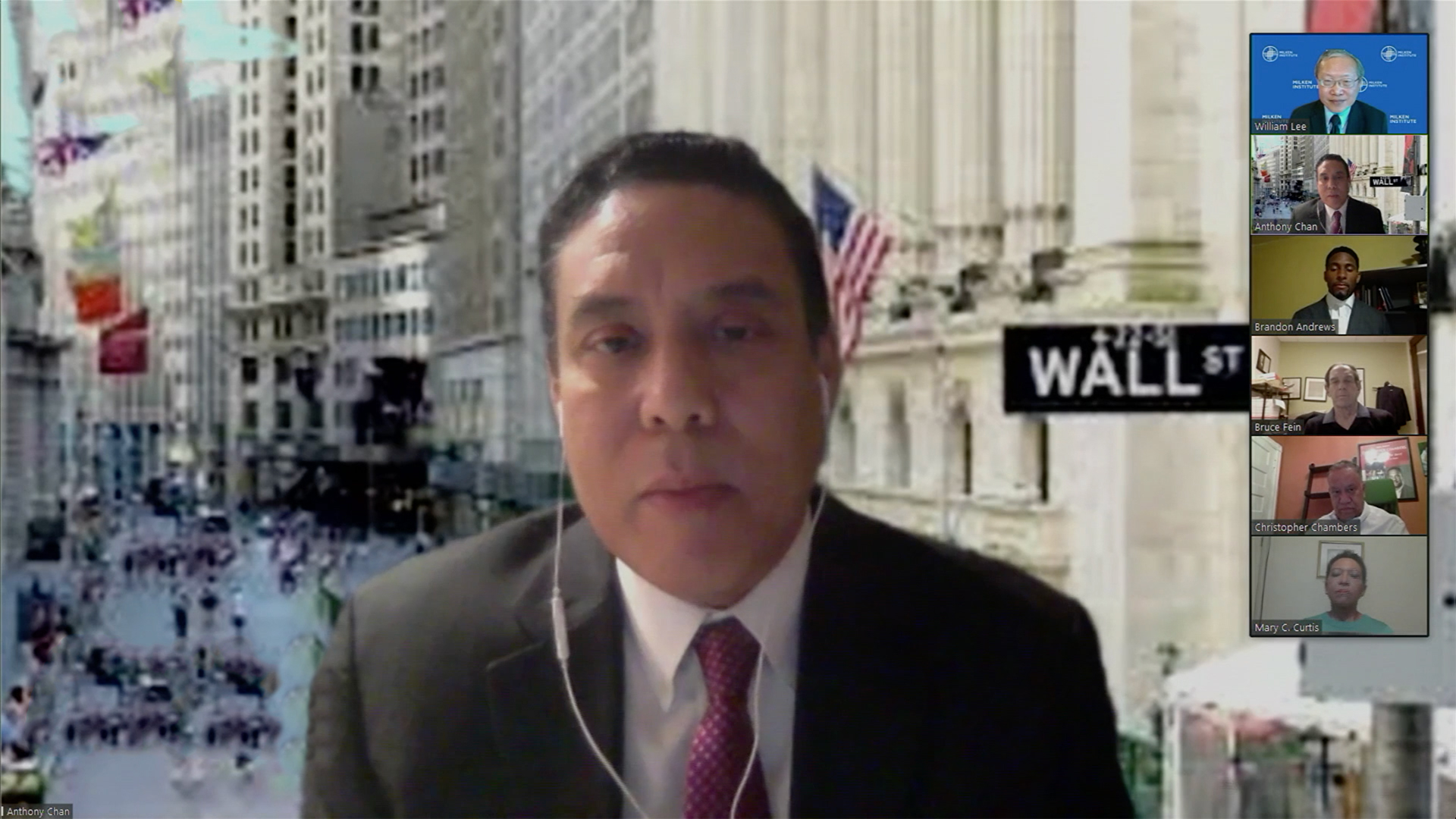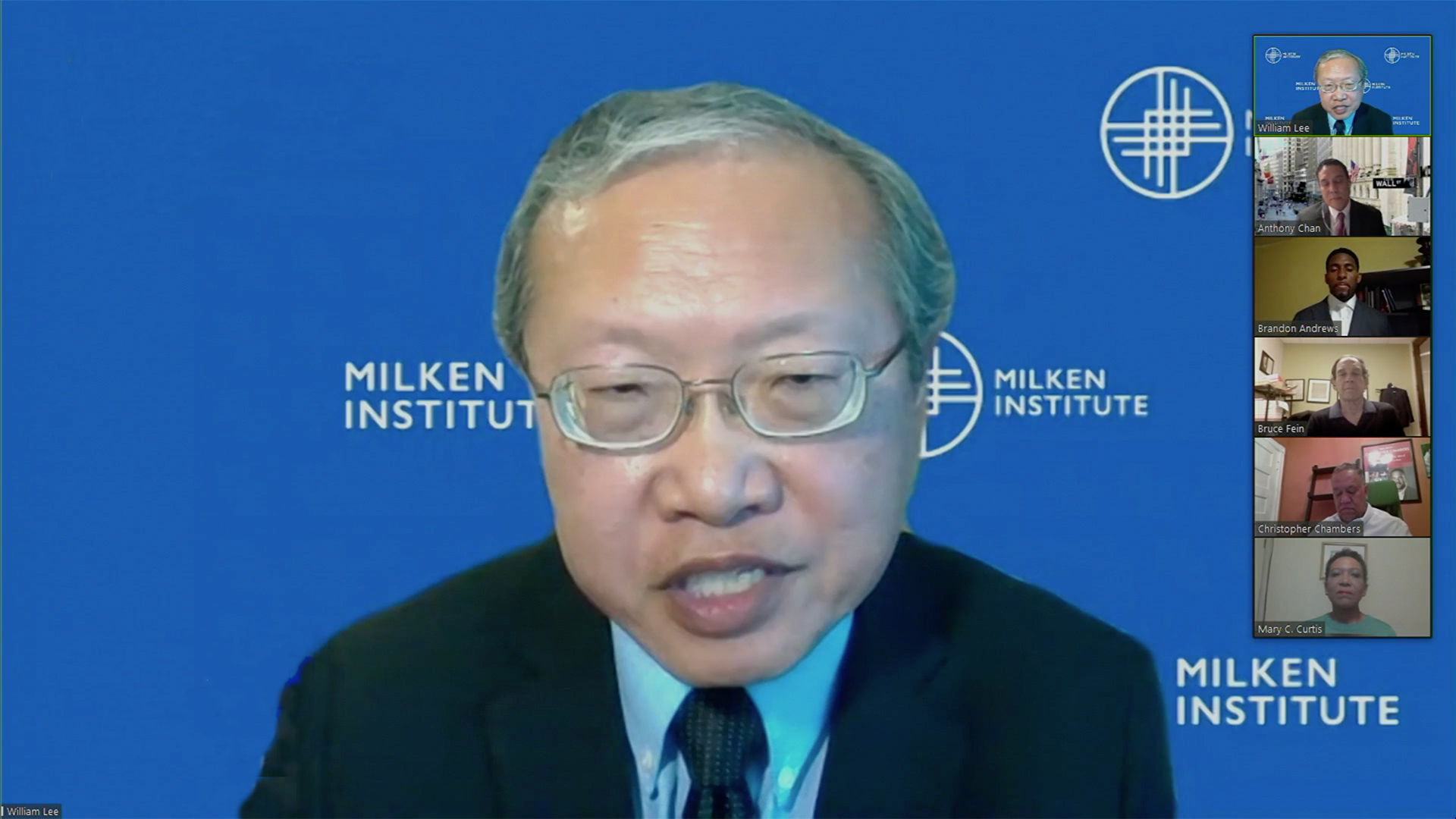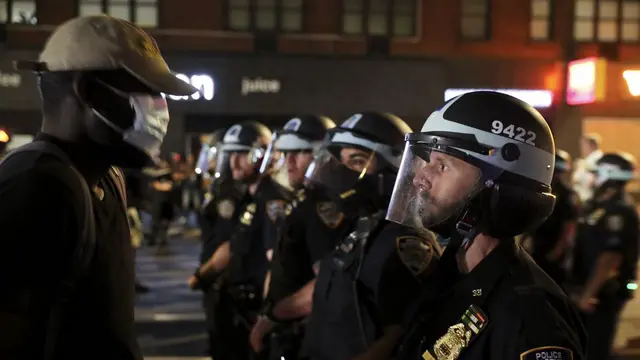02:23

"Systemic Racism in America – A Virtual Town Hall" is a special CGTN World Insight production with Tian Wei. Six panelists from America gave their takes on the mass protests that have erupted across the United States following the death of African-American George Floyd in police custody on May 25.
"Until many people saw the video, it was difficult for them to understand that law enforcement works differently for different kinds of people," said Mary C. Curtis, a columnist at the D.C.-based news organization Roll Call.
The video shot by a bystander in Minneapolis showed a white police officer placing his knee on George Floyd's neck for duration, despite repeated pleas of "I can't breathe" from Floyd and intervention from onlookers. Floyd died later that day and protests started the next day.
"It is a question of how the police are looking at African-Americans as a threat, are looking at African-American lives as basically throw away and not even pay attention to problems in the community that they could actually lend a hand in helping solve," said Christopher Chambers, a journalism professor at Georgetown University.
03:22

Bruce Fein, a constitutional lawyer who once served as an associate deputy attorney general, believes there are nuances to the current situation. The police officer who was filmed to have knelt on George Floyd's neck, Derek Chauvin, has been fired and charged with second-degree murder. The three other officers who were at the scene have been charged for their roles in aiding and abetting. "We do see that there has been the law at work here," noted Fein, "as it should with due process."
Fein also pointed out that the Minnesota attorney general who is leading the prosecution, Keith Ellison, is also African American and the first Muslim to be elected to the United States Congress.
"I don't think anyone would say that we haven't made progress since the time in the mid-sixties when one of my old brothers was arrested in a sit-in for trying to eat at a diner that was whites only," said Curtis. "We are beyond that of course. But I still would say there are more systemic problems, and to just say we need to be colorblind would be ignoring the history of this country."
Curtis said that for African Americans, fighting for equality is a constant effort. She pointed to the experience of her own son, a doctorate graduate from the prestigious Yale University, of being racially profiled, "because a police officer did not see that. They just saw that he was an African-American male."
Journalism professor Christopher Chambers believes the timing of the Floyd incident amid the COVID-19 pandemic created an almost perfect storm for the protests. According to the latest report published by the U.S. Bureau of Labor Statistics, the unemployment rate among blacks increased to the record high of 16.8 percent in May, while for white Americans the number fell to 12.4 percent.
George Floyd was one of the millions of Americans who had lost their livelihood due to the novel coronavirus. The state of Minnesota had implemented a stay-at-home order in late March, and the 46-year-old Floyd lost his security guard job at a restaurant. On May 25, Floyd allegedly tried to use a counterfeit 20-dollar bill to buy some cigarettes at a local grocery store. The shop clerk called the police and tragedy ensued.
Brandon Andrews, an entrepreneur based in Washington, D.C. stressed that economic justice should be at the center of conversations about racial inequalities in America. "I think we have to ask ourselves, why was Mr. Floyd using a counterfeit 20 U.S. dollars bill? Why was Eric Garner selling loose cigarettes? There are economic realities that force black people in the United States of America to take significant risks to provide for themselves and their families."
In July 2014, Eric Garner, a 43-year-old black man accused of selling untaxed cigarettes died after he was held on a New York sidewalk in an apparent chokehold by police. Captured on a cellphone video, Garner cried "I can't breathe" 11 times before losing consciousness. After a grand jury ruled not to indict the white police officer who placed the chokehold on Garner, protests broke out across America.
Anthony Chan, former chief economist at JPMorgan Chase said the lack of progress is a source of anger. He looked back to the killing of Dr. Martin Luther King in 1968, and the shock he felt at the time, as a young man living in New York City's public housing. "That was a big event for us in the ghetto because he was fighting for equality for all," said Chan. "Then you look at where we are today. The names have changed. Now it's Breonna Taylor, Eric Garner, Michael Brown."
Chan added that the economic figures also show a widening wealth gap. In 1968, the top 20 percent of households captured almost 42 percent of America's income, and that number has expanded to over 50 percent in the present day.
02:12

William Lee, Chief Economist at Milken Institute thinks that both systematic and non-systematic racism need to be addressed. As a Chinese-American who grew up in one of the roughest neighborhood in New York, Lee said he had many friends who were also minorities, and while some people such as himself "made it out of the slums," others do not. Lee believes the inequality of opportunities can be addressed through legal changes and educational reforms.
On the other hand, Lee points to the problem of non-systematic racism. He believes people who abuse their positions of power are fearful of losing their power to another group of people, and their fear and anger is often placed on the black people. "Those are things that we have to address on an individual level," said Lee, "and that's where having values and cultural values transfer from one generation to another.
World Insight with Tian Weiis an international platform for debate and intelligent discussion. It is the meeting point of both the highly influential and rising voices, facilitated by host, Tian Wei. It provides nutrition to form your own thoughts and ideas through 45-minute live debate and interviews.
Schedule: Monday-Saturday
Time (GMT): 1415, 2015
(If you want to contribute and have specific expertise, please contact us at [email protected].)
 简体中文
简体中文

